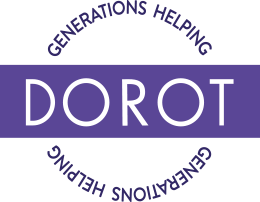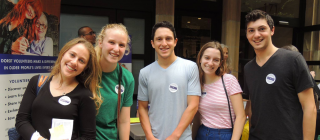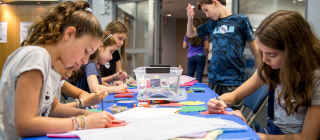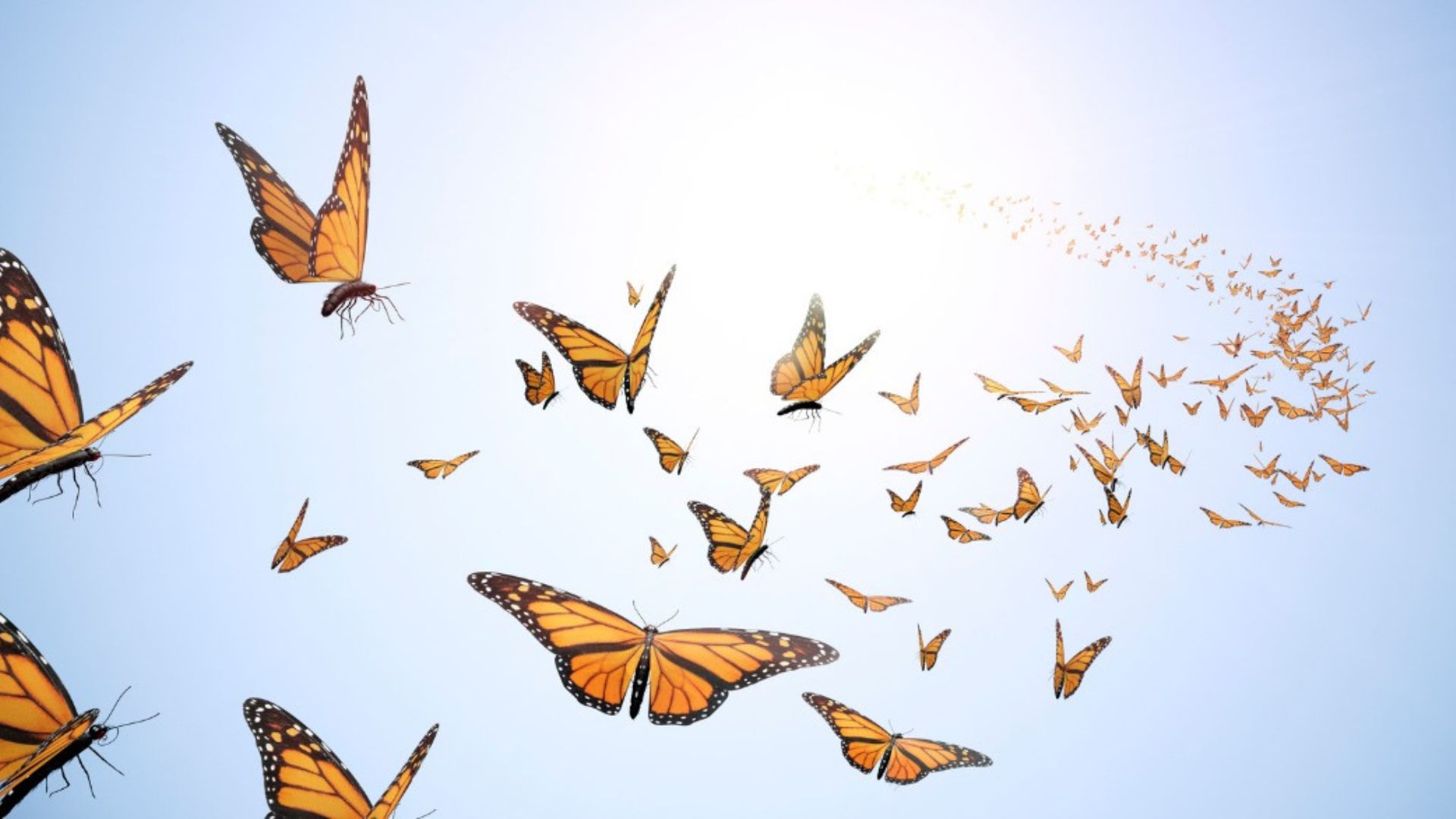Tomorrow (January 27) marks International Holocaust Remembrance Day, a day designated by the UN to mark the liberation of Auschwitz-Birkenau and to remember the lives of the millions of victims of the Holocaust. As we remember and mourn the victims, we also honor the survivors and their legacies—their stories and their families.
Children of Holocaust survivors, or 2Gs (second generation), now older adults, may experience unique vulnerabilities and resiliencies as they live with and process a legacy of generational trauma. Over the past few months, DOROT, together with a team of experienced facilitators, has developed and presented a series of virtual programs for 2Gs. The programs, which include a 3-part Zoom series on topics such as “Navigating Unsettling Times” and “Intergenerational Transmission of Resilience” as well as a monthly virtual gathering, provide a safe, welcoming forum to explore the experience of being a child of Holocaust survivors.
The incredible team of facilitators, Dr. Irit Felsen, PhD, Dr. Jenni Frumer, PhD, LCSW, MSEd, and Dr. Yonit Hoffman, PhD, have decades of individual and combined experience developing programs and providing services and educational opportunities to Holocaust survivors and their descendants.
In advance of International Holocaust Remembrance Day, we spoke with Dr. Frumer to learn more about the unique challenges facing 2Gs, particularly in this moment, and the impact of these programs to build community and shared understanding:
Can you share a little about yourself and how you connected with DOROT?
Dr. Frumer: The way I describe it, I grew up in South Africa around Holocaust survivors. It's a part of my DNA in a way, that's all I knew. As I began working in the field of older adults and those experiencing trauma, I found myself in this space because I have deep compassion for the experience of intergenerational families and the transmission of trauma.
I became connected to DOROT through connections made at an ASA (American Society on Aging) conference by Dr. Hoffman. I’m very happy to work with DOROT as the primary facilitator of this program series together with my co-facilitators. Dr. Felson and Dr. Hoffman are not only experts but are also compassionate and beyond fabulous to work with. And I personally want to thank DOROT for recognizing the need for these programs.
Can you talk a bit about 2Gs and what types of unique issues or challenges they might experience?
Dr. Frumer: While children of survivors may experience a range of vulnerabilities, we also know that they are incredibly resilient. Some grew up in families feeling like “Hitler lived there too” while others grew up never speaking about their parents’ trauma during the Holocaust and having to imagine it for themselves.
Often, 2Gs can feel different because their perception of the world is influenced by their trauma. For trauma-exposed individuals it’s more common to perceive the world as untrusting and the future is impacted by our perceptions. How do we navigate the future knowing that the world can be a really challenging place? How do we negotiate that and mitigate it for the next generation? How can we stay positive? As with all groups, there’s no one way to look at it or think about it. We are all different.
Together with DOROT and your co-facilitators, you’ve created this series tailored for children of Holocaust survivors. Why is it important to bring this group together? Is it particularly important in this moment?
Dr. Frumer: What makes these programs special and unique is they offer an opportunity to be with others who have a similar experience and to give a sense of solidarity. Bringing people together is always important and there’s value in bringing together a group with similar backgrounds and experiences.
October 7 may have also brought up a range of feelings and associated responses for 2Gs. I’ve had conversations where I’ve heard, “I’m so glad my parents are no longer here to see this. It would be devastating.” Or “I always dismissed the way they told me to keep my guard up and that this could happen again. I wish I could apologize now.” Learning about the impact of their trauma can help them understand themselves more and create a space to better learn from and connect with others who share similar experiences.
Is there anything you can share that’s come out of the three sessions or monthly gatherings?
Dr. Frumer: What we hear most in the Zoom chat is “thank you.” That people feel validated. That they feel grateful to be in a space where people are expressing similar thoughts and feeling. At every session we’ve had close to 100 people attend -- the need is there. We hear that people are attending from different countries, in some cases staying up late at night to be able to participate.
What would you say to 2Gs or 3Gs (their children) who may feel hesitant to join these types of programs?
Dr. Frumer: I would encourage any 2G to join a group or attend a presentation. We know that many 2Gs were encouraged to “get on in their lives.” There was a push was to acculturate and be part of society as new immigrants. As they begin to age now, they are entering a different stage. They may have children and grandchildren, had careers, been involved in their community. Then, through the aging process, coupled with current geopolitical issues, vulnerabilities can set in. This is another reason I would encourage them to try to join groups where they can connect with others with a similar background. It also offers participants an opportunity to tap into their resilience, which is often passed through generations.
Thank you so much to Dr. Frumer and her colleagues for their expertise and partnership. You can find more information on the past sessions and how to join our monthly drop-in gatherings (the next one is on February 7) HERE.
DOROT’s new Zoom Programs for Children of Holocaust Survivors (2Gs) are made possible by funding provided by the New York State Office for the Aging: NYS Contract Nos. T220193, T200057, T220219 and T230080. The contents are those of the author(s) and do not necessarily represent the official views of, nor an endorsement, by NYSOFA or the NYS Government.




